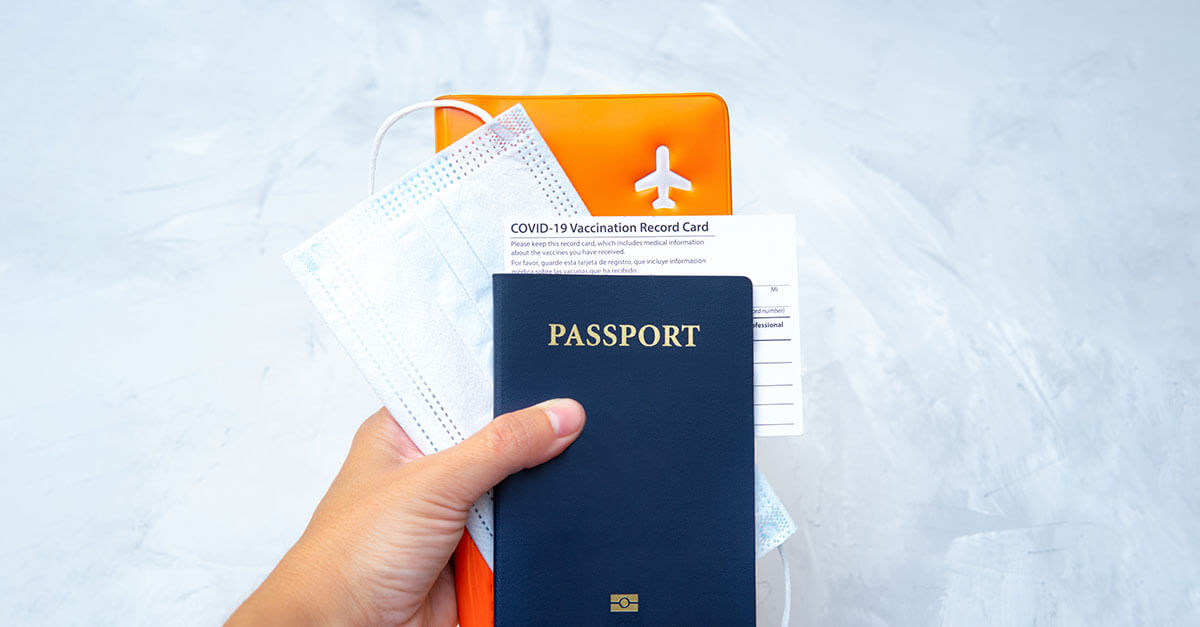
After a long wait, the lockdown and travel restrictions have been lifted. As a result, the tourism industry is flourishing, and a surge has been recorded in the number of international travellers. Recently, many countries have stopped asking tourists to submit COVID-19 negative reports to enter their borders.
But, still, we need to acknowledge the threat is not entirely over. Coronavirus cases are rising in many parts of India and the world. Thus, the smart thing to do would be to plan and strategise for this contingency. While taking the necessary covid-19 precautions like wearing a mask, frequently sanitising hands, and maintaining appropriate distance should keep you safe, here is some additional advice that will ensure a smooth and hassle-free trip.
When you are about to begin your journey, do some research. Start by finding out the COVID-19-related guidelines of the origin airport and the destination country. Get a heads up on what it would entail if you tested positive during your vacation.
In some countries, the rules mandate confinement in a government-mandated hotel or hospital if you turn positive. While at other destinations like India, the government has mandated that international travellers fill out a self-declaration form to disclose all the necessary information about themselves before entering the borders. Gathering all this data and knowing what can happen can reduce stress and prepare you for the worst possibility.
Before starting your trip, you should look into your airline’s cancellation policy. Most airlines now treat coronavirus like any other health emergency, so, if you fall sick and have a doctor’s prescription, you are let off with minimal or no penalties.
You can also get a travel insurance plan that covers COVID-related cancellations and changes. Since the travel insurance does not cover cancellation due to fear of contracting COVID, you can consider getting the CFAR (cancel for any reason) insurance policy. Although it is a little expensive, it can be worthwhile in some circumstances!
If you are leaving for a trip, pack everything you may need for the extended stay in case you turn positive. This covers carrying extra meds and other necessities you rely on for making it through the day. Another piece of advice you must pay heed to is to check your medical insurance. It is possible that your health insurance plan doesn’t cover treatment costs when you are abroad.
If you catch COVID-19 during your trip, you may need to extend your stay in the hotel until you test negative. For this purpose, it is a good idea to enquire the hotel staff about the check-in and check-out rules. Ask them if you or someone from your family tests positive, will they allow you to prolong the stay? Will they offer any discounts in this case? If the answer is no, you may want to check into a hotel with a nearby government facility where you can quarantine.
Tip: Travellers on a road trip should check if there are hotels along the route that will allow contact-free check-in so you can quarantine without putting others in danger.
When you are on the road, you may fall sick from COVID-19 or other health problems and require medical help. For such scenarios, it is a good idea to research the kind of medical care you can access in advance. Knowing about the healthcare facilities in your neighbourhood will enable you to seek help immediately in case of an emergency.
While travelling, if you are sick and are in a location where the medical infrastructure is excellent, you should get treated there. However, if the medical services are not adequately developed in your travel destination, you may want to contact your travel insurance provider and ask about possible evacuation back home.
If you are travelling in a group and one of you turns positive, you must take precautions so others can stay safe. The best solution in this circumstance is to get a room in a hotel and isolate yourself. During the time you are positive, make sure not to get into contact with anyone. Ask the staff to put the essentials and food outside. If there is a situation when you are forced to come into contact with someone, wear the N95 mask and sanitise your hands frequently. Ask the other person to take precautions as well.
You must be a little cautious when travelling in the era of COVID-19. Therefore, plan and strategise for all the possibilities before you get on the road. Try taking the above-mentioned precautions before booking your flight tickets and hotel rooms. Doing so will ensure your safety during the journey and help you minimise monetary losses if you contract covid-19 when you are away from home.

